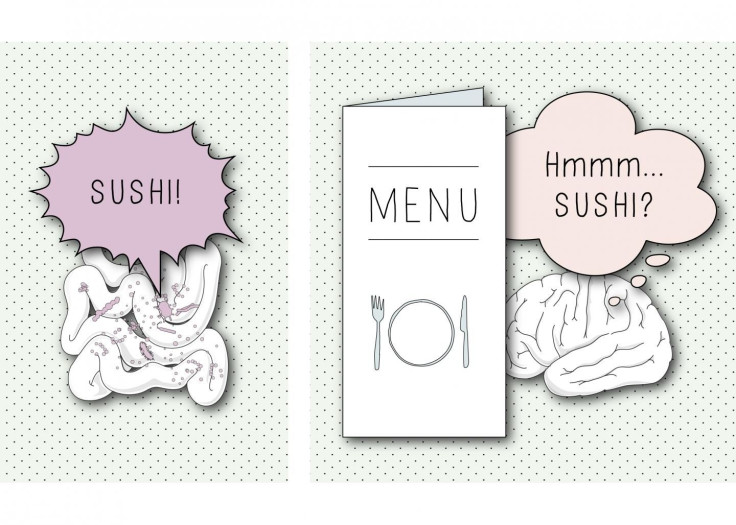How The Gut May Influence Food Choices: Fruit Flies With More Bacteria Had Fewer Cravings

Your stomach, rather than brain, may have more control over what you eat than you think.
According to new research, gut bacteria communicate with the brain and influence some decisions. Past findings indicate that gut microbes affect behavior; however, a recent study is the first to explore how the microbiome, the large community of bacteria in an animal’s gut, influences specific nutrients. When scientists increased strains of bacteria in the digestive tract of fruit flies, they avoided certain foods, which suggests that either a lack of bacteria, or even overabundance, may affect what foods we reach for.
Read: Crohn's Disease Research 2017: How Gut Bacteria Imbalance Leads To Inflammation
To better understand this, a team of neuroscientists experimented with fruit flies and their diets.
The study, published in PLOS Biology, was a collaborative effort between a team from the Champalimaud Centre for the Unknown in Lisbon, Portugal and a scientist from Monash University, Australia. They fed three groups of flies each a different diet that included synthetic solutions, which are much less complex than natural foods.
One group received a solution with all the necessary amino acids. Another group was fed a mix that included some amino acids used to make protein, but it lacked other essential amino acids. The last group was fed a diet in which the researchers removed the amino acids one at a time to see which were influencing the microbiome.
After 3 full days of the diet, all of the flies were presented with a sugary solution and protein-rich yeast. The researchers observed that the flies whose diet was depleted of any single essential amino acid preferred the protein-rich food. But when the scientists increased five species of gut bacteria naturally found in the flies’ digestive tracts, some of them experienced a behavior change and avoided eating the yeast. Despite a deficient diet, the flies continued reproducing.
To the researchers' surprise, it only took two specific species of bacteria to rid the amino acid-deprived flies of their protein craving. "With the right microbiome, fruit flies are able to face these unfavorable nutritional situations,” said study author Zita Santos, in a press release.
“In the fruit fly, there are five main bacterial species, in humans there are hundreds of them,” added co-author Patricia Francisco.
On first thought, the researchers believed specific bacteria would make up for the flies who lacked essential amino acids, but they realized what was happening was more complex.
The gut bacteria “seem to induce some metabolic change that acts directly on the brain and the body and mimics a state of protein satiety,” said Santos.
Further studies need to be conducted to determine the effect on humans, but this simple animal model provides a stepping stone for future research.
The human gut microbiota, located in the intestine, is home to trillions of microorganisms, which includes at least 1,000 different species of bacteria. Although each of us have different microbiota, it performs the same functions. Some of the functions include digesting certain foods that the stomach and small intestine may not be able to, helping with the production of vitamins B and K, and performing a barrier effect in the immune system.
See also: Gut Bacteria May Help Protect Us Against Asthma And Allergy Risk
Food For Thought: Gut Bacteria May Influence How The Mind Works, Affecting Mood And Behavior



























